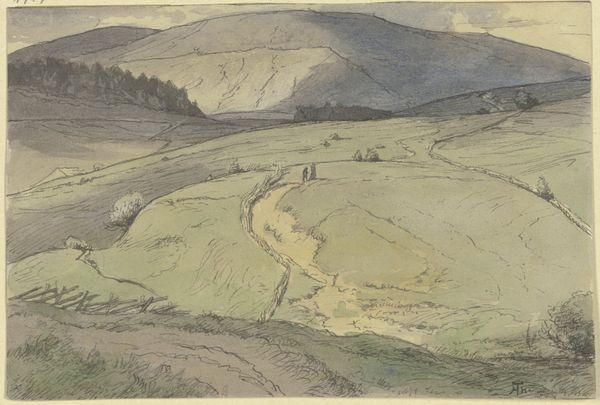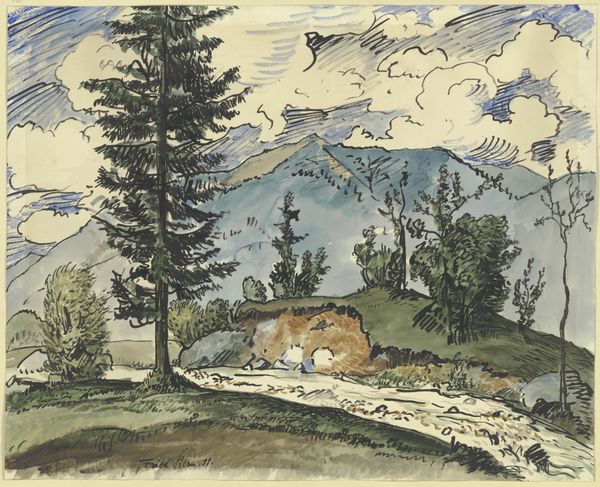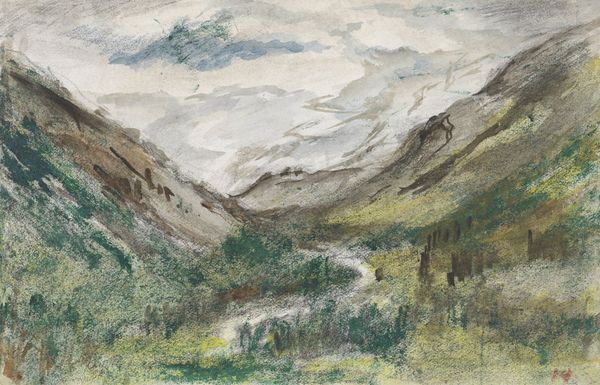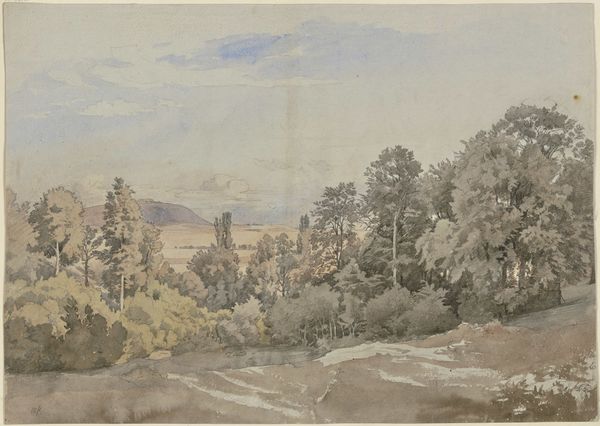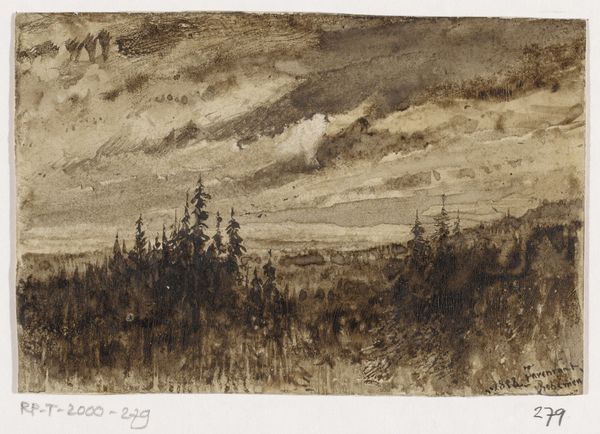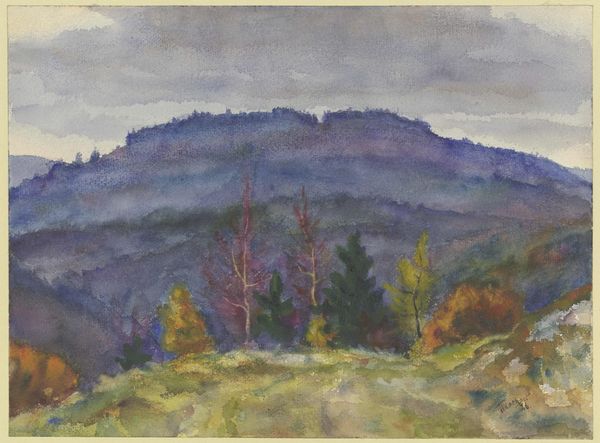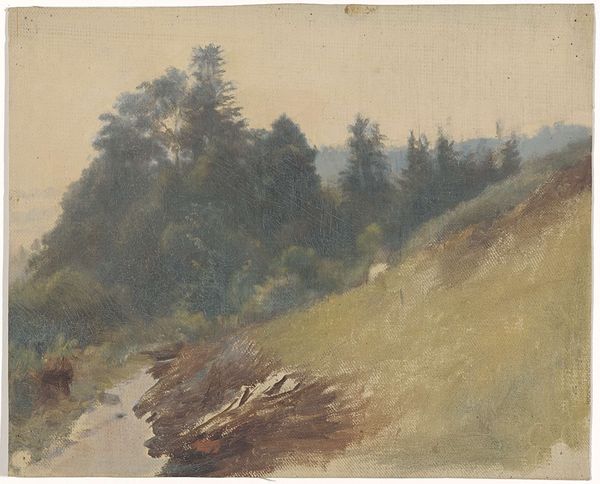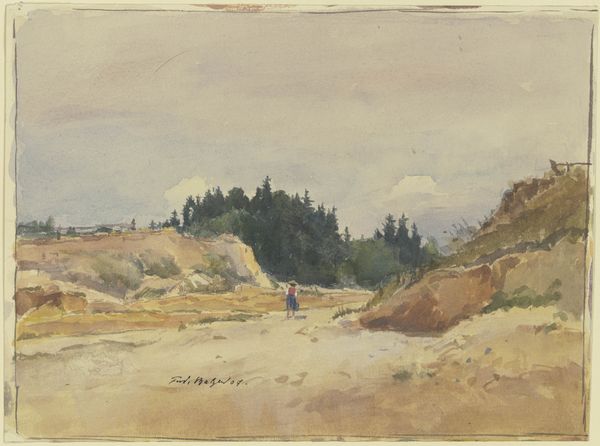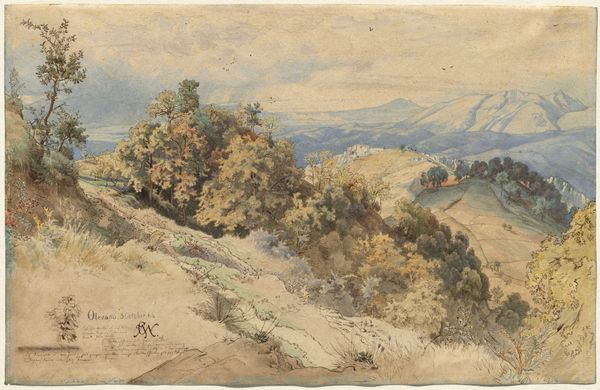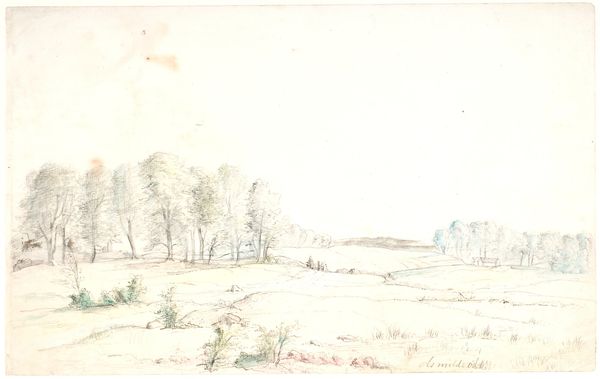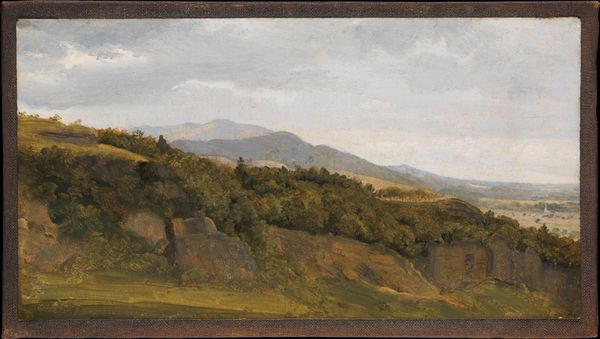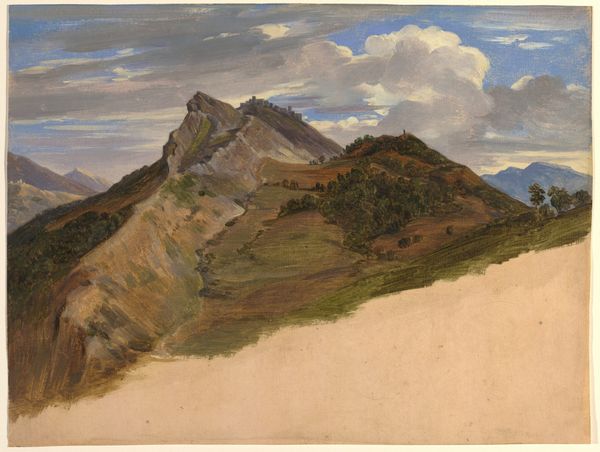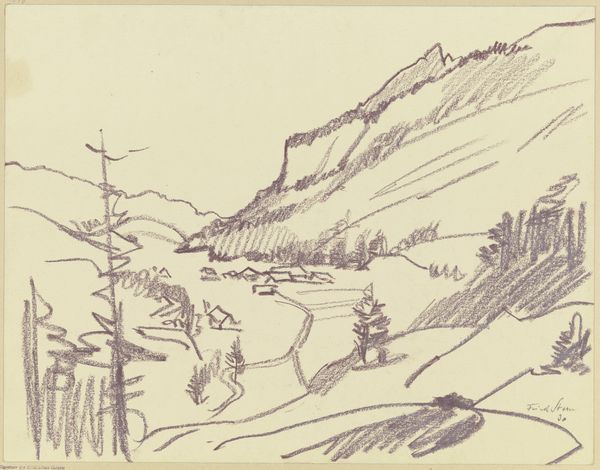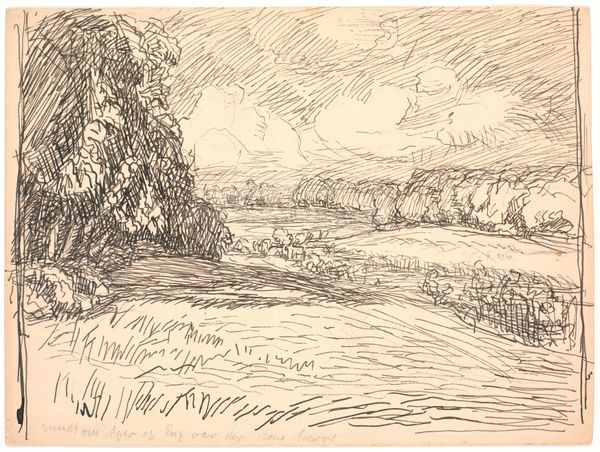
Copyright: Public Domain
Hans Thoma painted this watercolor landscape of the Black Forest. The inherent qualities of watercolor as a medium influence the appearance of the work. The pigments, suspended in water, allow for translucent washes of color, creating a sense of depth and atmosphere. The texture of the paper also plays a role, as the paint settles into its fibers, creating a subtle graininess. Thoma likely employed techniques like layering and blending to achieve the soft, naturalistic tones seen in the hills, trees, and sky. This approach to painting landscapes reflects a broader cultural movement in the 19th century that emphasized direct observation of nature. Artists like Thoma sought to capture the essence of a specific place, investing it with personal and emotional significance. In doing so, they elevated landscape painting to a genre that could express not only aesthetic ideals but also cultural and national identity. It reminds us that understanding the materials, processes, and cultural context is essential to fully appreciate the richness and complexity of such artworks.
Comments
No comments
Be the first to comment and join the conversation on the ultimate creative platform.
